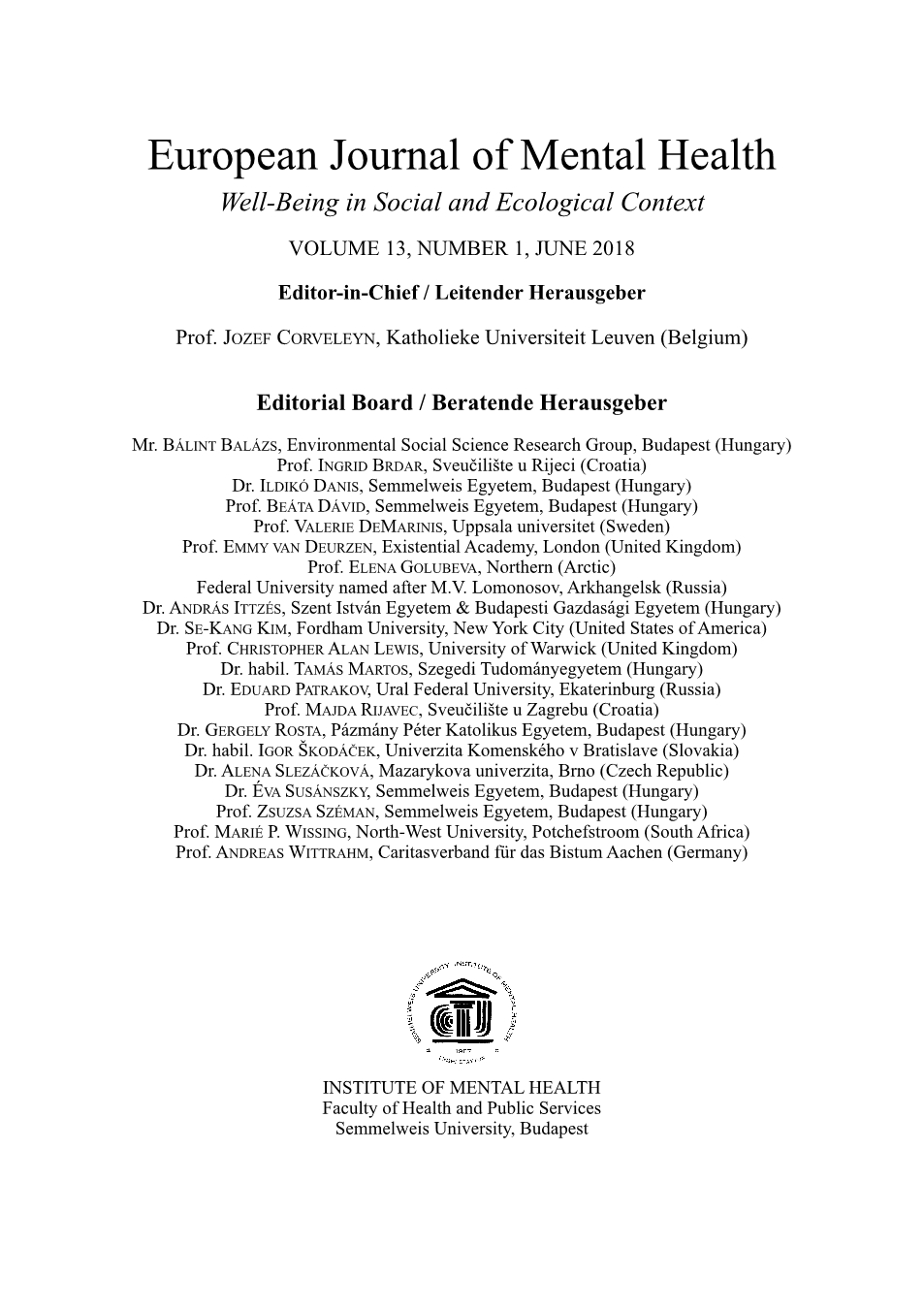Ethical Implications of Obstetric Care in Hungary: Results from the Mother-Centred Pregnancy Care Survey
Ethical Implications of Obstetric Care in Hungary: Results from the Mother-Centred Pregnancy Care Survey
Author(s): Imre Szebik, Éva Susánszky, Zsuzsa Szántó, Anna Susánszky, Nicholas RubashkinSubject(s): Social Sciences
Published by: Semmelweis Egyetem Mentálhigiéné Intézet
Keywords: respectful maternity care; midwifery model; informed consent; unconsented care; caesarean section; episiotomy; labour induction
Summary/Abstract: Background: Informed consent plays an important role in clinical decision making. It is a basis ofself determination in health care. In ideal situations health care professionals inform their patientsabout all relevant aspects of care and alternative care options, map the value system of the patients,and adjust the information process accordingly. Objectives: Our objective was to see the frequency of selected interventions (birth induction, caesareansection, episiotomy, forced supinal position during birth, and the consent process associatedto these interventions.Methods: 1,257 women (with childbearing capacity) between the age of 18 and 45 with childrenunder the age of 5 were surveyed online.Results: Caesarian section was done without permission in 10.2% of women.Labour was inducted in 22.2% of all deliveries and it was done without permission in 25.4% .Episiotomy was done in 39.9% of women having vaginal delivery in the Sample 2 group and in72.2% of women having vaginal delivery in the Sample 1 (representative) group. Women undergoingepisiotomy were not asked for consent in 62.0% in the Sample 1 group and in 57.1% in theSample 2 group. Freedom to choose labour position for women having vaginal birth was restrictedin 65.7% in the Sample 1 group and in 46% in the Sample 2 group.Discussion and Conclusions:We have found that the right of women to informed consent and bestavailable treatment is frequently and seriously violated in obstetric practice in Hungary in the givenperiod. These findings should serve as an important basis for improving the quality of maternitycare.
Journal: European Journal of Mental Health
- Issue Year: 13/2018
- Issue No: 01
- Page Range: 51-69
- Page Count: 19
- Language: English

